sex

Shermer and Aella discuss: Aella’s conservative Christian upbringing • sex work and feminism • male-female sexual psychology differences • why women are choosier and more risk averse • what men and women regret about sex • BDSM, fetishes, and sexual violence • the women who sell sex and the men who buy sex • agency and volition in sex work: women and men • virtual sex, phone sex, cyber sex • pornography: good or bad? • decriminalizing sex work.

What happens when sex is more about identity than pleasure, intimacy, or interaction? And what happens when culture warriors gang up on sexuality—and from several directions? And has this affected our mental health? After over 40 years and 40,000 sessions with individuals and couples as a Licensed Marriage and Family Therapist and Certified Sex Therapist, […]
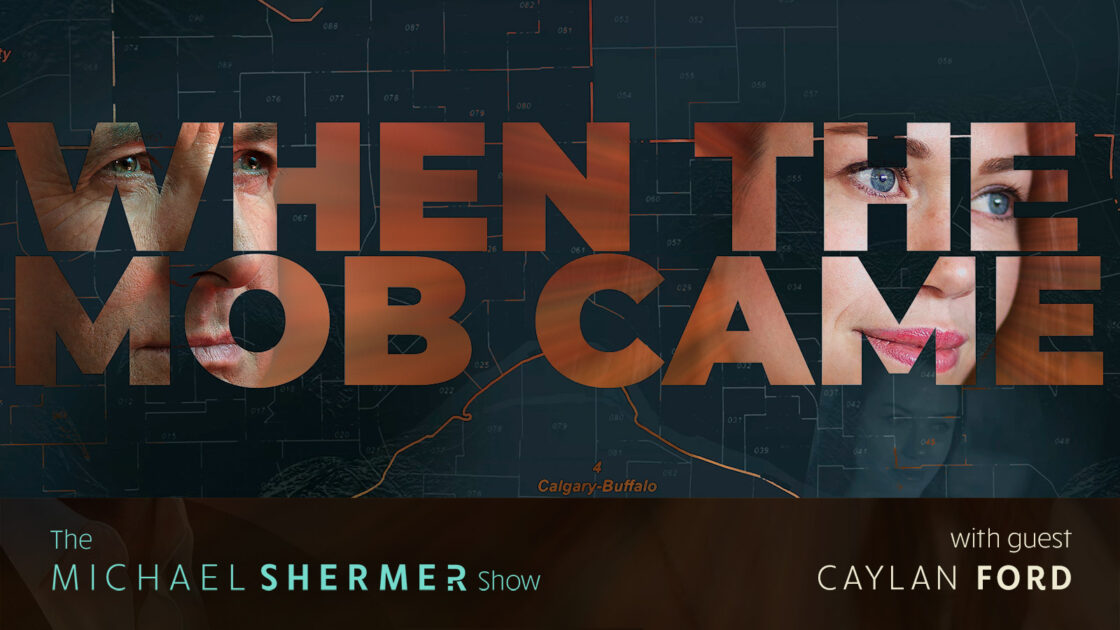
Shermer and Ford discuss: • education reform • public vs. private vs. charter schools • the blank slate • Thomas Sowell’s Constrained Vision vs. Unconstrained Vision • French Revolution vs. American Revolution • truth, justice, and reality • what promotes humanity and what degrades it • transhumanism • political correctness • identity politics • cancel culture • totalitarianism • preference falsification • free speech • hate speech • how to stand up to cancel culture.

Shermer and Mandel discuss: the problem of woke ideology • anecdotes vs. data about woke actions and intentions • sex and gender • woke medicine • transgender affirming care • government vs. private responses to social movements and ideas • Trump, DeSantis, Liz Cheney, the Lincoln Project, and other GOP issues • abortion: pro-Choice or pro-Life? • support for children: government or private? • What is “the left” and how does it differ from liberalism, classical liberalism, and libertarianism? •…

Dr. Shermer comments on current events surrounding trans matters and reads his in-depth essay on the subject, originally published as one of his regularly Skeptic columns on Substack.
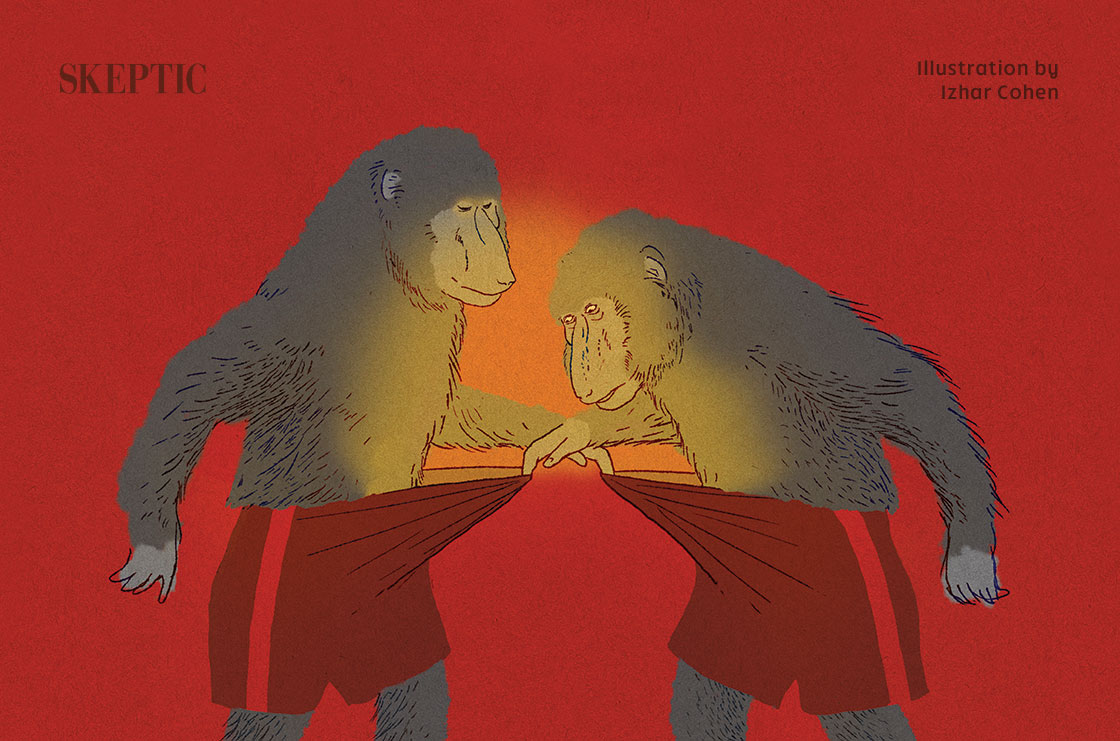
The assertion that human sex differences are socially constructed is part of a broad anti-science movement that has enveloped academia and distorted our basic understanding of science. Sex is not a simple matter of socialization and male and female are fundamental distinctions deeply rooted in biology. This is an article about how we went from sex to gender and how the push for a sexless society is a dangerous and utopian vision that cuts us off from our evolutionary history.
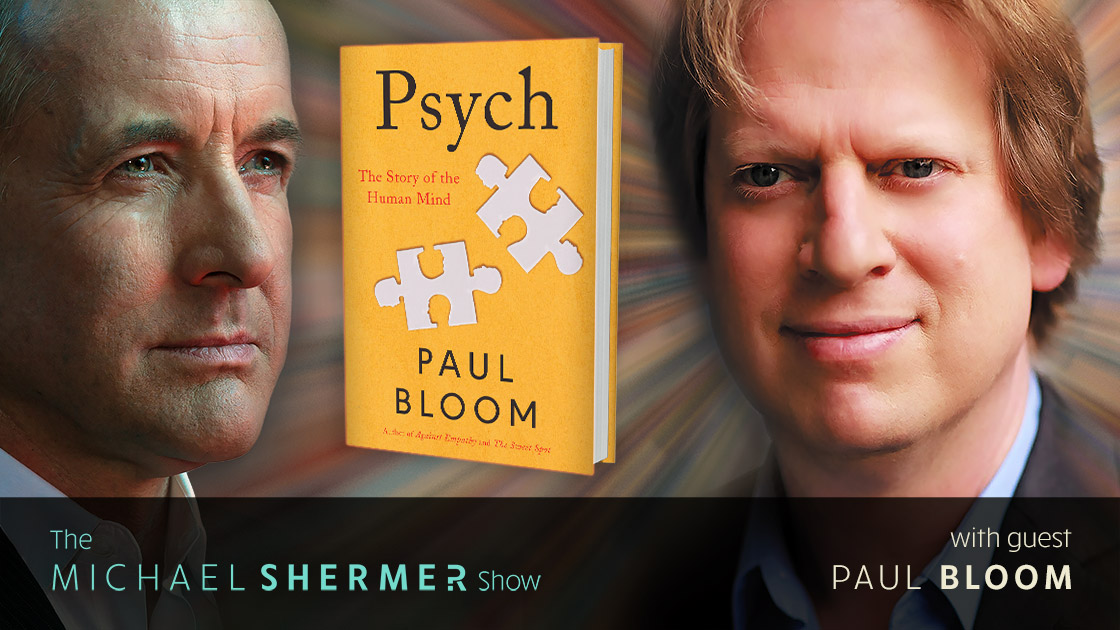
How does the brain — a three-pound gelatinous mass — give rise to intelligence and conscious experience? Was Freud right that we are all plagued by forbidden sexual desires? What is the function of emotions such as disgust, gratitude, and shame? Renowned psychologist Paul Bloom answers these questions and many more in this conversation based on his riveting new book about the science of the mind: Psych.
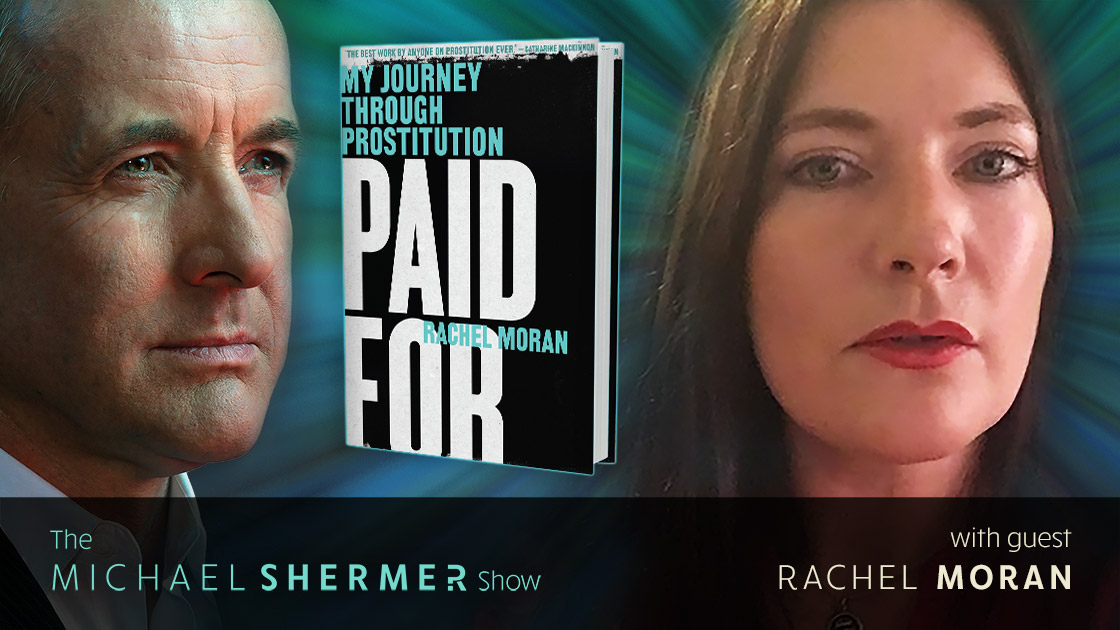
Shermer and Moran discuss: her dysfunctional family background • her boyfriend who pimped her • the women who sell sex and the men who buy it • why other prostitutes have attacked her • agency and volition in prostitution: women and men • why “prostituted” as something done to women (instead of choosing it)? • what she thought about when having prostituted sex • drugs, depression, and suicide as responses to prostitution • the myths of prostitution • feminism and…

In recent years a number of books written by women in their 30s reflect on their sexual histories in their 20s in a regretful way, deciding that the type of feminism that liberated women to have sex like men — carefree and commitment-free with a variety of partners and with no consequences — is perhaps not the best strategy inasmuch as women and men differ in their sexual psychology. In this article psychologist Carol Tavris evaluates this claim and how…

According to the standard model of evolutionary psychology females tend to be sexually coy, discriminating, and risk averse while males are sexually assertive, indiscriminate, and risk taking. Not so fast, says Carol Tavris in this skeptical look at the standard model, as context and species also matters in how we analyze behavior, especially sexuality.

Shermer and Perry discuss: What was the sexual revolution? • feminism: first wave, second wave, third wave, and beyond • the evolutionary psychology of sex differences • experiencing self vs. remembered self • individual freedom vs. societal good • monogamy vs. polygamy • marriage vs. domestic partnerships • Why is the government in the marriage business? • BDSM and sexual violence • autogynephilia • trans matters • abortion matters.
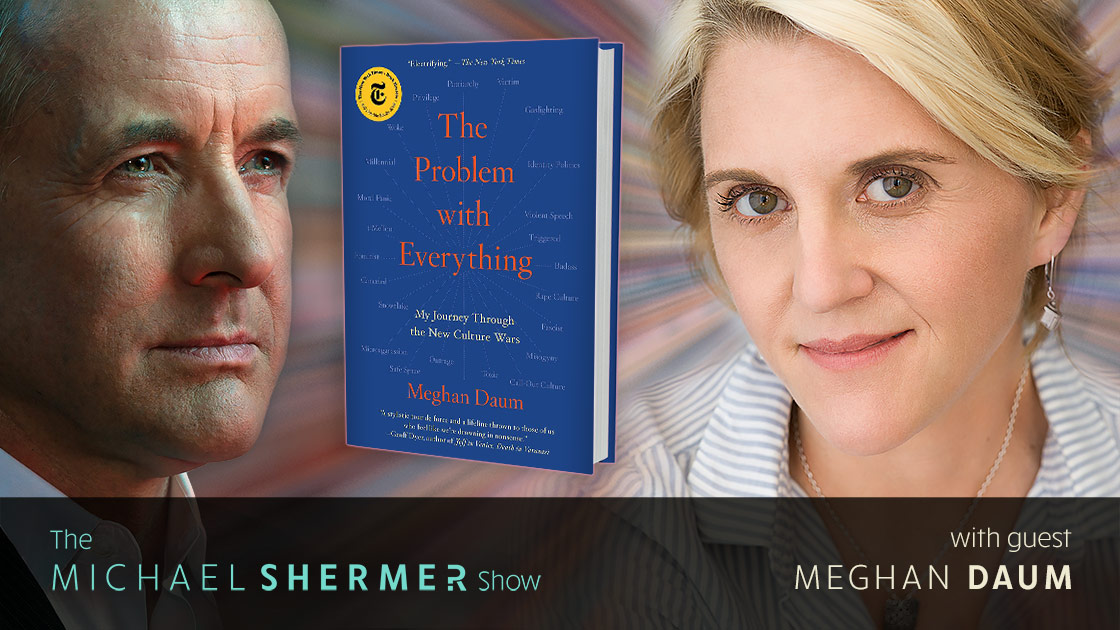
Shermer and Daum discuss: unauthorized autobiography • Feminism (first, second, third wave, and beyond) • Was the sexual revolution good or bad (or both) for women? • badassery, problematica, wokescenti, cognoscenti • Gen Xers • Elders • What is a woman? • Sex and Gender • who you identify as vs. who you’re attracted to • Trans • #metoo and #BLM movements • intersectionality • toxic masculinity • wokeness, liberal vs. progressiveness, far left vs. left • cancel culture, and…
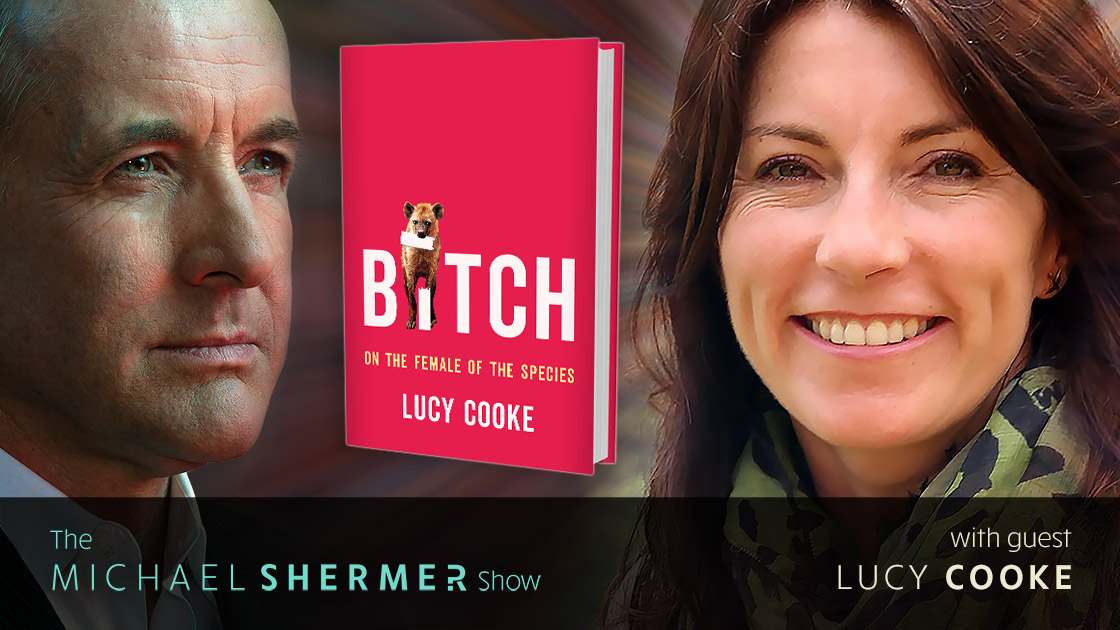
Shermer and Cooke discuss: the definition of male and female across the animal kingdom • male bias in the history of science • genes involved in sex determination and how they work • sexual selection • adaptationism vs. non-adaptationism • Why do women have orgasms? • why female animals are just as promiscuous, competitive, aggressive, dominant and dynamic as males • what humans can learn from non-human animals • maternal/paternal instincts • patriarchy/matriarchy across the animal kingdom • why the sexes…
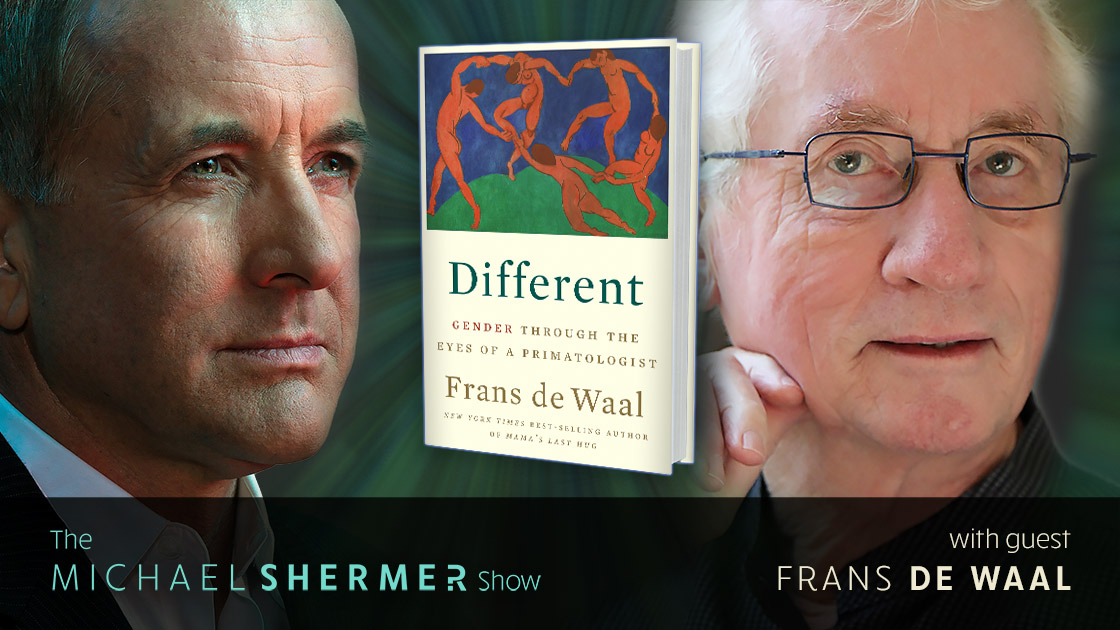
What is gender? How different are men and women? Are differences due to biological sex or to culture? How do they compare with what is known about our fellow primates? Do apes also culturally learn their sex roles or is “gender” uniquely human? Michael Shermer and Frans de Waal discuss sexual orientation, gender identity, and the limitations of the gender binary, exceptions to which are also found in other primates.
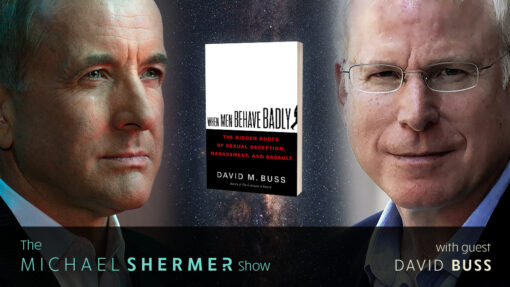
In episode 181 of Michael Shermer’s podcast, Michael speaks with professor of psychology David Buss about sexual conflict, morality, and the double standards that flourish even in the most sexually egalitarian cultures on earth. Buss shows that this “battle of the sexes” is deeper and far more pervasive than anyone has recognized, revealing the hidden roots of sexual conflict — roots that originated over deep evolutionary time.
In episode 181 of Michael Shermer’s podcast, Michael speaks with professor of psychology David Buss about sexual conflict, morality, and the double standards that flourish even in the most sexually egalitarian cultures on earth. Buss shows that this “battle of the sexes” is deeper and far more pervasive than anyone has recognized, revealing the hidden roots of sexual conflict — roots that originated over deep evolutionary time.
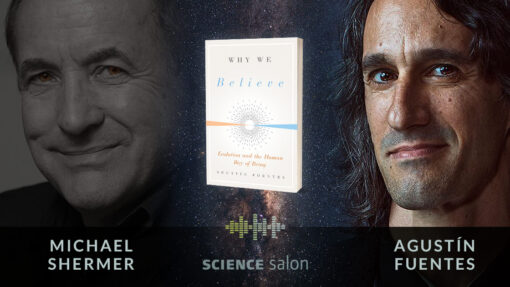
Why are so many humans religious? Why do we daydream, imagine, and hope? Philosophers, theologians, social scientists, and historians have offered explanations for centuries, but their accounts often ignore or even avoid human evolution. Fuentes employs evolutionary, neurobiological, and anthropological evidence to argue that belief — the ability to commit passionately and wholeheartedly to an idea — is central to the human way of being in the world.
Why are so many humans religious? Why do we daydream, imagine, and hope? In Science Salon # 144 Michael Shermer speaks with Agustin Fuentes about his new book Why We Believe: Evolution and the Human Way of Being.
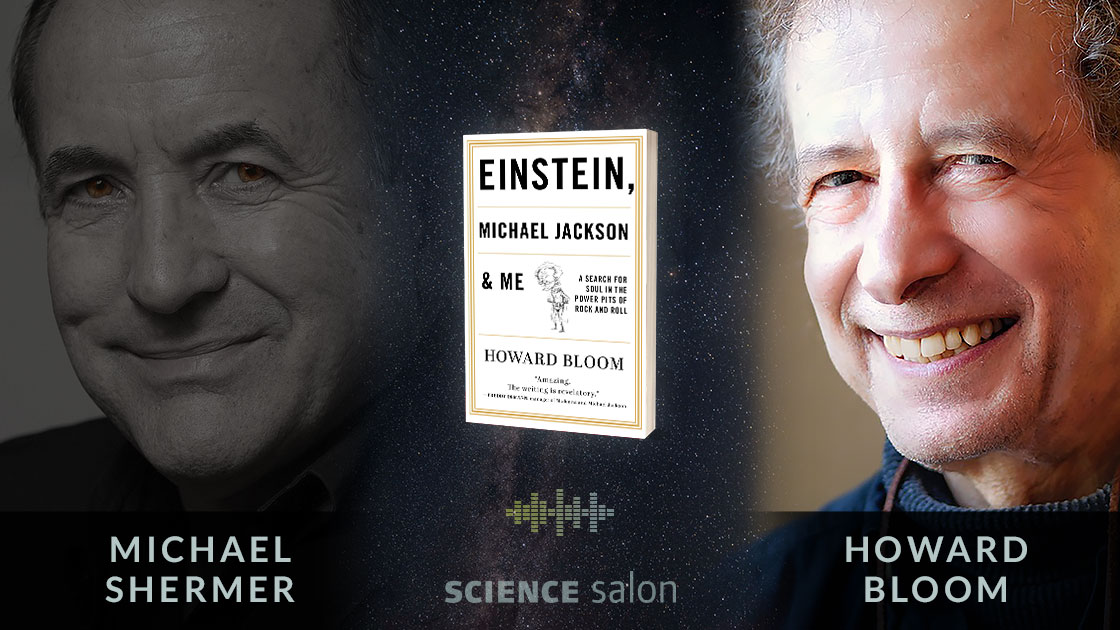
Howard Bloom — called “the greatest press agent that rock and roll has ever known” — is a science nerd who founded the biggest PR firm in the music industry and helped build or sustain the careers of rock-and-roll legends: Michael Jackson, Prince, Bob Marley, Bette Midler, Billy Joel, Billy Idol, Paul Simon, Peter Gabriel, David Byrne, AC/DC, Aerosmith, Queen, Kiss, Grandmaster Flash and the Furious Five, Run DMC, ZZ Top, Joan Jett, Chaka Khan, and one hundred more. What…
In Science Salon # 119 Michael Shermer speaks with Howard Bloom about his book Einstein, Michael Jackson, and Me: A Search for the Soul in the Power Pits of Rock and Roll. PLUS, we examine free speech and censorship in Skeptic Magazine 25.2 (2020): Giving the Devil His Due, available now in print and digital formats.
NEXT →

























